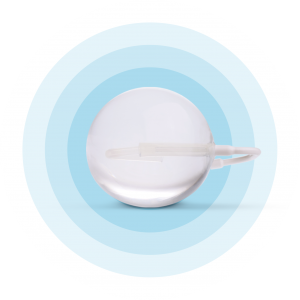 The Spatz gastric balloon just like any other gastric balloon is intended for weight loss. It is a non-surgical system that is used alongside a detailed 12 or 18-month long weight loss program that involves dieticians, psychologists, reviews from specialist doctors; all of which aid in your weight loss journey.
The Spatz gastric balloon just like any other gastric balloon is intended for weight loss. It is a non-surgical system that is used alongside a detailed 12 or 18-month long weight loss program that involves dieticians, psychologists, reviews from specialist doctors; all of which aid in your weight loss journey.
While a majority of the gastric balloons are designed to stay in the stomach for only 6 months, the Spatz gastric balloon can last for up to one year. It is the only balloon that’s adjustable which means that a doctor can decide to increase or decrease its to either suppress your appetite further or improve it. The adjustments can be made as many times as necessary without affecting the effectiveness of the balloon.
The Spatz Process
A gastroscope, which is a type of camera, is used to place the Spatz silicon balloon into your stomach. This procedure takes about 20 minutes. The balloon is then filled up with saline to a volume that your doctor will find appropriate. This is an outpatient procedure done under sedated and once complete, you can be discharged in a couple of hours.
Most clinics give you an opportunity to works with a team of specialists who guide you on how to make changes to a healthy lifestyle, which exercises to engage in as well as what kinds of food to eat for maximum weight loss. The balloon might be a little uncomfortable at the beginning but as you get accustomed to it, life gets easier.
Because the balloon is adjustable, the doctor can choose to either add or reduce the amount of fluid in it so as to either suppress your appetite further or enhance it if you’ve lost too much weight within a specified period.
Once treatment is complete, the balloon is removed through the mouth.
Weight loss
On average, individuals who have gone through the procedure lose an average of 20 to 30 kilograms within a year. It’s possible to lose more or less and the determinant is the work done over and beyond the Spatz balloon treatment such keeping to a strict diet and workout regime.
Is Spatz Gastric Balloon Ideal For You?
If you have a body mass index of over 30 then you definitely fit the bill for this procedure. Getting it done early enough can help mitigate illnesses that occur due to obesity such as diabetes, hypertension, high blood pressure, heart disease, among others.
For morbidly obese individuals with BMIs of 50 and above, the Spatz gastric balloon can be administered to help in initial weight loss before undergoing a more invasive weight loss procedure such as gastric bypass.
To undergo the treatment, you don’t necessarily require your practitioner’s reference. Most clinics conduct all examinations independently before administering treatment.
Costs Associated With The Spatz Balloon System
Most hospitals and clinics charge an average cost of $2100. The price includes surgery procedure, anesthesia, medical materials, medicaments, food and post operative care. The price is likely to vary from hospital to hospital and from jurisdiction to jurisdiction. Some people opt to get the procedure done from abroad in countries such as Mexico. Others, however, prefer to spend more and be closer to their doctors at home should any complications arise. Whether you chose to get the surgery done locally or abroad, the key thing is to ensure that it is performed by a qualified and experienced medical practitioner who has a good track record.
Diet Change After Surgery
Once the Spatz gastric balloon has been inserted, you are started off on a dietary re-education program. The surgeon will most likely give you a nutrition schedule with relevant dietary advice.
The first few weeks is characterized by a liquid dieting. Coffee, tea, broth, non-sparkling drinks, yogurt and fresh fruit juice are highly encouraged at this stage.
Caution should be taken when consuming these fluids however because too much at once could cause pain and discomfort in the stomach.
Solid foods are introduced in the following weeks. Small portions that gradually increase as time goes by. Depending on the rate at which you’re losing weight, the doctor might decide to reduce or increase your calorie intake.



